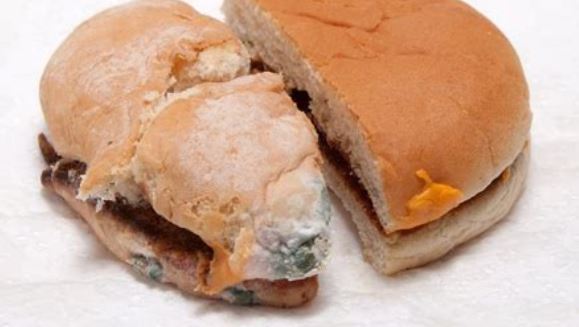
When nuclear disaster struck at Japan's Fukushima-Daiichi power plant, it was clear that the environmental impact of such extreme amounts of radiation would be immeasurable. Reports on just how bad the situation at the plant is have continued to reveal a devastating truth: Even in 2017, the amount of radiation being produced by the damaged reactors was lethal. In spite of the obvious risk, Japanese government officials are now looking to make use of the radioactive Fukushima -- by using dirt from the site to build new roads.
Roughly six years after the meltdown began, the radiation in and around the nuclear reactors was still being described as a "nuclear explosion that doesn't end." Experts have reportedly said that the amount of radiation produced at Fukushima was "unimaginable." And now the government wants to use materials from the area to build roads?
Virtually everything in and around the Fukushima disaster site could probably pose a threat to human health. Reports from 2017 showed that radiation levels at the site could reach as high as 530 sieverts per hour. A level of five sieverts per hour is enough to prove deadly for some in a matter of months; at 10 sieverts, you might survive for a few weeks.
When the inherent toxicity of all things Fukushima is taken into account, it comes as no surprise that a growing number of people are concerned with the Japanese government's scheme to simply re-purpose soil dug up from the disaster site to build new roads in the region.
Residents of the area are understandably concerned that they might be poisoned by the tainted dirt. While it is true that the radiation from the Fukushima meltdown has spread for miles in seemingly every direction, for the government to go out of its way to spread irradiated soil just seems a touch irresponsible. How many government officials do you think would be living near the proposed radiation-laden roads?
The U.K.'s Daily Star reports that during a briefing on the project, locals erupted and "angry scenes" ensued; who could blame them? Despite the government's attempts at ensuring people that the radiation-tainted roads will be safe, it seems that the people of the area were not buying it.
Japan's Environment Ministry announced plans to begin trials of the radiated roads in the city of Nihonmatsu -- but citizens are just not having it. As Japan Times explains:
Under the plan, tainted soil will be buried under a 200-meter stretch of road in the city. The soil, packed in black plastic bags, has been sitting in temporary storage.
The plan is to take about 500 cu. meters of the soil, bury it under the road at a depth of 50 cm or more, cover it with clean soil to block radiation, and pave over it with asphalt.
Japanese authorities say that burying the irradiated soil under "clean" earth will "block" any harmful radiation emitted from Fukushima soil. But, there are many concerns about how safe and effective this "clean" soil curtain will be -- and many feel that this risk simply is not worth whatever "reward" the government is looking to get.
According to Modern Survival Blog, you need a clean soil depth of 36 inches to block radiation -- equivalent to 91.5 centimeters, and nearly double what the Japanese government has proposed. Concrete needs to be 24 inches thick to block radiation, so exactly how thick are they planning on making this road?
Ultimately, this seems to be an unsavory way for the government to "dispose" of the irradiated soil.
Given that the Japanese government has been strongly encouraging citizens of the disaster area to return to their homes in spite of the record-high levels of radiation still being recorded, it's sadly not that surprising that they are looking to build roads out of the radioactive soil. What will they think of next?
Read more stories about how the Fukushima-Daiichi power plant is effecting us all at Fukushima.news.
Sources for this article include:
Please contact us for more information.


















